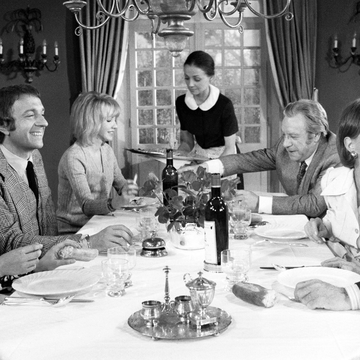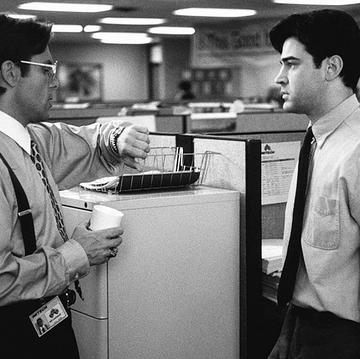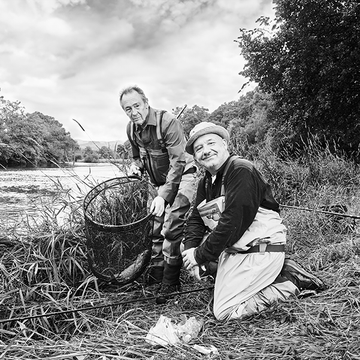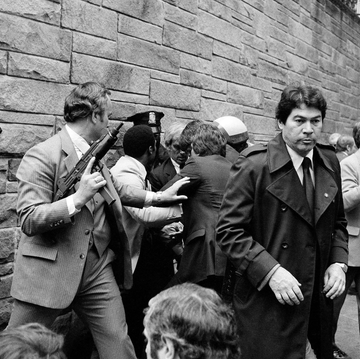Nobody is getting out of this world alive: three grandparents and two cocker spaniels departing in quick succession inured me to this fact some time ago. Still, I was surprised when one of the first pieces of advice I was given on getting engaged last year was that I should write a will. Admittedly, it was my dad who said it, so I’m not entirely sure his words weren’t a vaguely threatening way of telling me he didn’t fancy paying for the wedding. But the idea that Happily Ever After was a Disney filter obscuring The End stayed with me.
I had been feeling a little morbid even before being told to put my affairs in order: the circle of life seemed more pronounced as friends started to have children while others suddenly lost a parent. Some of it was easy to shrug off but other aspects, especially as Covid-19 began to breathe its death rattle, became hard to ignore.
Any notion that drawing up my last will and testament would be a momentous and stately affair quickly gave way to the understanding that this was a process more akin to renting a Fiat Panda at Bologna airport, with the search results on Google all competing to offer me the cheapest and fastest experience possible. In fairness, that analogy might be a little harsh on the good folk at Avis and Hertz, who at least have the courtesy to treat the exchange of cash for vehicle with some solemnity.
The trading of funds for my last wishes upon dying, as I quickly learned from the form on simplerwills.co.uk, was a smash and grab which I could apparently kick off in just 30 seconds. The website — which was having a somewhat forbidding bumper sale — asked various questions which ordinarily wouldn’t faze me, but under the looming cloud of death I felt should be given more consideration. Who is the will for? Well, me, but hopefully someone else might get something out of it. Do you have children? No, but I don’t want to write out any potential offspring because I only have 11 seconds left to finish the form.
“Do you have anything to leave behind?” my fiancé asked me in bed one night. The man who not long ago had knelt before me to propose in the purple dusk of Northern California now didn’t so much as look up from inspecting Arsenal’s new home kit to contemplate my impermanence. I didn’t dignify his words with a response, though made a note he wouldn’t be getting either of my DVDs of Notting Hill, the bastard.
A few days later, I realised what I should have said was that a will isn’t the sum of its contents but the shadow of us that we leave behind, less about the stuff than what the stuff says about you. Or so the people trying to flog you a will would have you believe. Shakespeare left most of his estate to his eldest daughter and gifted his beloved only his second-best bed, while Houdini asked his wife to perform a séance every year following his death to try and make contact with him. She supposedly tried for 10 years before giving up, though it seems more likely she read the instructions and thought, sod that.
What would my pile of stuff say about me? I have somehow amassed five identical pairs of Adidas Stan Smith trainers, clinging to the hope that each one has a level of wear perfect for an as yet unknown occasion. Perhaps I could leave one to each of the men who wronged me throughout my life? Bit weird. I’m tempted to bequeath a tote bag from Simpler Wills to my dad as revenge for starting this existential crisis, but you do have to take into account that you won’t be around to explain the joke if it doesn’t quite land.
Getting married is just a piece of paper, and a weapon of the patriarchy (those bastards again), and increasingly uncool among young people, but to me it always felt like a kind of hope that time would keep stretching forward to make a path in front of me. People joke that it is insurance you won’t end up alone but if getting married was about leaving one family and starting another one, making a will felt like a reminder you’d be leaving that family one day, too.
As of writing this, nobody has come up with a way of getting around death, so it’s probably not worth worrying about, or ruining dinner parties by bringing it up all the time. (“Don’t sit next to her, won’t shut up about dying.”). It is at least comforting to know that someone will take ownership of all my knackered shoes when I’m gone. Isn’t that what true love is all about?
This article appears in the November/December 2020 print edition of Esquire













